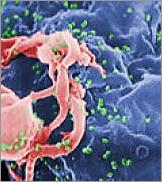
In the early 1980s, during the initial throes of the AIDS epidemic, a flight attendant named Gaetan Dugas came to be identified as "Patient Zero" because he was represented in popular culture as the person who brought HIV to North America. A recent study published in Nature used genomic data to map the spread of HIV during that time, demonstrating conclusively that Dugas was not the North American index case as previously depicted. An analysis of the case by Greg Clinton explores "the spectacle of disease narratives, not only what they emphasize, but what they tend to obscure." Drawing on the groundbreaking work of Priscilla Wald and others, Clinton describes how epidemiological narratives, most famously that of Typhoid Mary, are "typically bound up with literary concerns, such as the assignment of 'hero' and 'villain' status to a person or group." He argues for consumers to apply "critical consciousness" to such media-driven spectacles, resisting the all-too-human temptation to passively absorb narratives that assign meaning, "even if that meaning is false and only serves to perpetuate fear of the Other." Read the entire article here.